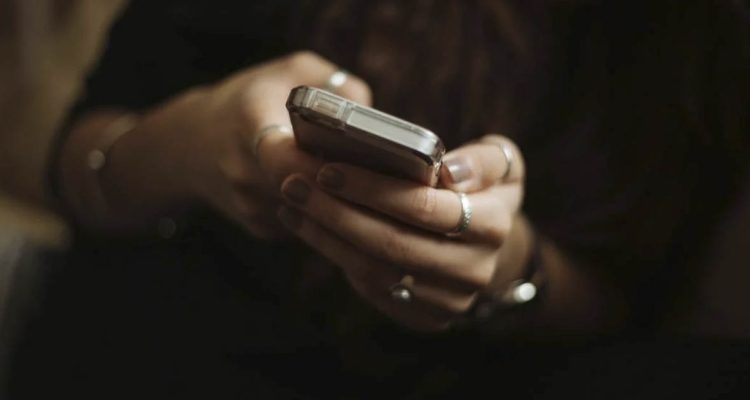
Communications between the residents and the hotline may also reveal crimes committed by, or against, the person in question
TJ Martinell
The Center Square Washington
Recently the Washington Attorney General’s Office launched a 24/7 confidential youth reporting system that allows residents up to 25 years old to contact them regarding a variety of issues, including mental health and physical safety. However, communications between the residents and the hotline may also reveal crimes committed by, or against, the person in question.
While the AGO has developed procedures for when to contact law enforcement, some concerns have been raised as to how the program’s stated purpose and best practices might lead to conflicting priorities.
According to HearMeWa’s Best Practices Toolkit, the intent of the hotline is “to provide a place of support and early intervention for youth who may have concerns about themselves or others. The referral and response framework aims to defer youth from the criminal justice system and into systems of support that are inclusive and respectful of all youths’ needs.”
While youth surveyed for the program identified issues such as social pressures, cyberbullying, and mental well-being that could be helped via a hotline, they also cited sexual abuse/assault and abuse/neglect as other needs the program could address. For example, one youth surveyed noted that they needed help “when I was in an abusive relationship at the age of 17, with a much older person.”
Further, youth surveyed made recommendations for the program that emphasized confidentiality and not involving the police “when not necessary.” One youth who participated in an online survey conducted for the program wrote “Please no police. Having the police leads to LGBTQ+, BIPOC, and other marginalized communities to use these resources less, and they might need it the most.”
According to the best practices toolkit, “the AGO expects tip responder agencies will follow youth’s recommendations when practicable within their agency or organization’s existing policies and procedures, always prioritizing the safety and well-being of those contacting the program.”
Allowing the AGO to accept reports of criminal activity as part of the program has proved controversial. The concept of the hotline was first introduced via Senate Bill 5835 during the 2019. Last year, the concept was again reconsidered under Senate Bill 5327. Neither bill cleared the Legislature, but Senate Bill 5327’s language was inserted in the operating budget as a $2.5 million funding proviso.
Washington Association of Sheriffs and Police Chiefs Executive Director Steve Strachan wrote in a statement to The Center Square that “WASPC believes every effort should be made to support the provision of services to those who need services, particularly victims of crime.
“However, reports of criminal activity should be made to law enforcement, not the Attorney General’s Office. To our knowledge, this [HearMeWa] program was never intended to defer youth from the criminal justice system, serve as an alternative to the criminal justice system, or to not involve the police. We have every confidence that the Attorney General will alert law enforcement immediately when immediate emergency response to a tip is warranted, and refer and follow up with law enforcement – just as the law requires.”
When The Center Square reached out to the AGO for comment, Communications Manager Brionna Aho wrote that under the program “all reports of imminent threats, actions in progress and/or that require immediate intervention should be sent to 911, and secondary resources as appropriate.”
Examples of that include:
- Actions, past, present and future that can put someone in danger
- When the person is reporting a missing person or a runaway child, or a matter that requires more in-depth investigation due to potential criminal activity.
- When the person is reporting an ongoing crime and call center staff has enough evidence to believe that a dispatch team is required.
Examples of when they do not contact law enforcement are calls/tips regarding anxiety, bullying, depression, hazing, homelessness, and substance abuse.
“Our program has clear guidance for our contractor, which was created in consultation with our law enforcement partners and the advisory group,” Aho wrote.
This report was first published by The Center Square Washington.
Also read:
- Opinion: Revolution or revival?Nancy Churchill argues that Washington state is ground zero for a Marxist-style revolution but says a cultural revival is possible through personal responsibility and the America First movement.
- WA governor pressed to veto $1.8B piece of Democrats’ tax billGrocers and restaurateurs are urging Gov. Ferguson to veto a surcharge in HB 2081 that they say will raise food prices statewide.
- CCSO makes arrest in attempted kidnapping investigationA 31-year-old Vancouver man has been arrested in connection with an attempted kidnapping involving a teenage girl near NE 149th Street.
- Changing roles: Brian Witherspoon accepts position as head coach of Camas girls basketballBrian Witherspoon has been hired to lead the Camas girls basketball program after serving as interim boys coach last season.
- Vehicle crashes into Vancouver Fire Station 6 during emergency responseA vehicle crashed into Vancouver Fire Station 6 late Tuesday night while crews were out on an emergency call.
- Letter: ‘It’s said sarcasm is the lowest form of wit’Amboy resident Thomas Schenk criticizes Olympia’s use of “emergency clauses” and other legislative tactics that limit public participation.
- Letter: ‘We’re going to give them some money and a plane ticket, and then we’re going to work with them’Camas resident Anna Miller supports a new structured self-deportation policy, calling it a balanced approach to immigration and economic needs.











